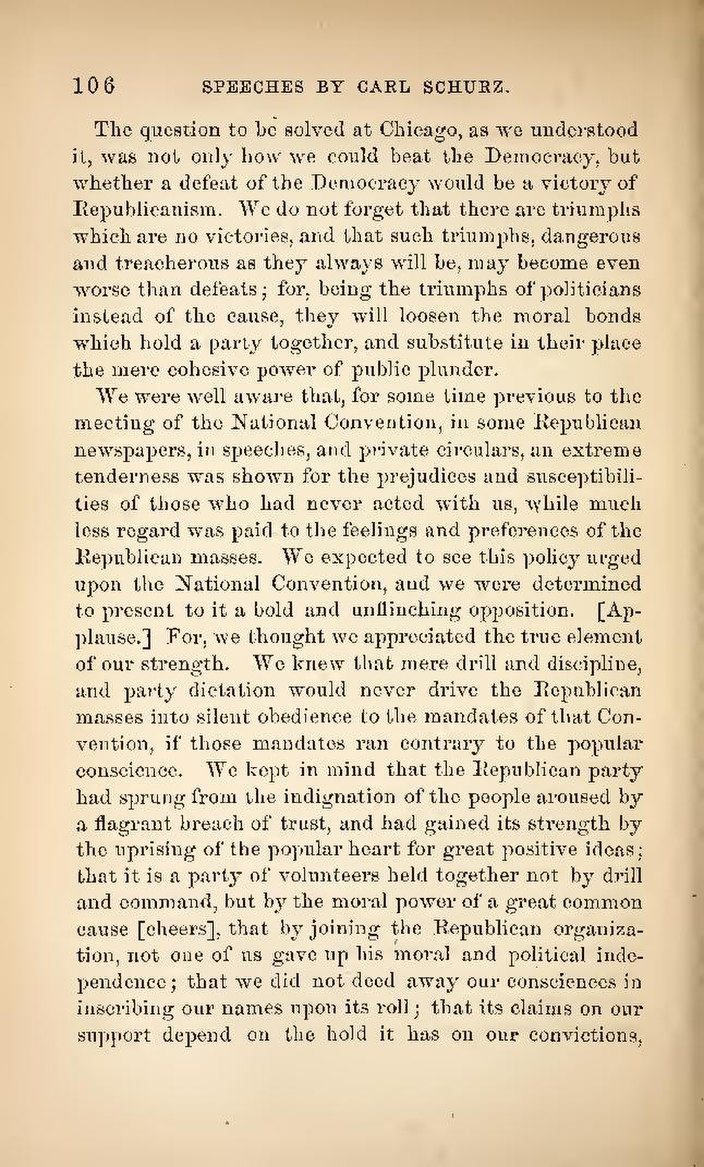The question to be solved at Chicago, as we understood it, was not only how we could beat the Democracy, but whether a defeat of the Democracy would be a victory of Republicanism. We do not forget that there are triumphs which are no victories, and that such triumphs, dangerous and treacherous as they always will be, may become even worse than defeats; for, being the triumphs of politicians instead of the cause, they will loosen the moral bonds which hold a party together, and substitute in their place the mere cohesive power of public plunder.
We were well aware that, for some time previous to the meeting of the National Convention, in some Republican newspapers, in speeches, and private circulars, an extreme tenderness was shown for the prejudices and susceptibilities of those who had never acted with us, while much less regard was paid to the feelings and preferences of the Republican masses. We expected to see this policy urged upon the National Convention, and we were determined to present to it a bold and unflinching opposition. [Applause.] For, we thought we appreciated the true element of our strength. We knew that mere drill and discipline, and party dictation would never drive the Republican masses into silent obedience to the mandates of that Convention, if those mandates ran contrary to the popular conscience. We kept in mind that the Republican party had sprung from the indignation of the people aroused by a flagrant breach of trust, and had gained its strength by the uprising of the popular heart for great positive ideas; that it is a party of volunteers held together not by drill and command, but by the moral power of a great common cause [cheers], that by joining the Republican organization, not one of us gave up his moral and political independence; that we did not deed away our consciences in inscribing our names upon its roll; that its claims on our support depend on the hold it has on our convictions,
